Measures to treat and treat food poisoning at home
The situation of food poisoning often occurs after eating contaminated or toxic food, natural poisonous food or rancid metamorphosed food, preservatives, additives . The Pain symptoms usually disappear after a few days, when the toxin has been excreted from the body.However, you also need to take some basic measures to help yourself feel more comfortable and speed up recovery.In particular, in serious cases, you need to go to the hospital for immediate treatment.Here are measures to treat and treat home-based food poisoning.
Part 1: Determine what to do
1. Find out the cause of food poisoning
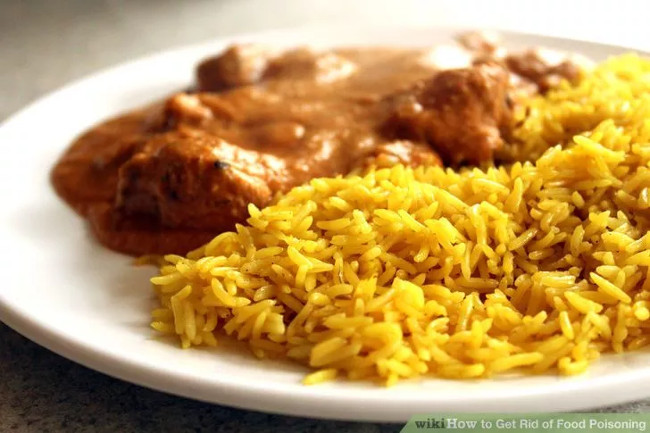
Before overcoming symptoms of food poisoning, it is important to find the cause of the poisoning . You need to remember what foods were eaten within the last 4 to 36 hours. Or do you try new food? Is there anything that smells unpleasant, rancid? Do you eat food with friends or relatives who are also experiencing symptoms of poisoning? Here are some possible causes of food poisoning:
- Escherichia coli ( Escherichia coli ), salmonella ( bacteria (bacteria) that cause bacterial infections ), and other bacteria.Bacteria usually die only when food is cooked and properly treated, so food poisoning is often caused by uncooked meat or food that is not properly stored.
- Poisonous fish , such as puffer fish, can also be a "culprit" that causes food poisoning.Do not eat puffer fish unless prepared in a puffer fish restaurant.
- Poisonous forest mushrooms , which look like regular mushrooms, can also cause food poisoning.
2. Immediately go to the hospital if needed

Food poisoning caused by bacteria , especially when attacking healthy people, can be treated at home. However, depending on the cause of food poisoning and the age of the sufferer, before treating the symptoms of food poisoning,an immediate examination is necessary.See a doctor immediately if one of the following occurs:
- People with food poisoning eat fish or poisonous mushrooms .
- People with food poisoning are infants or young children .
- People with food poisoning are pregnant.
- People with food poisoning are over 65 years old.
- People with food poisoning are suffering from severe symptoms, such as difficulty breathing, dizziness or fainting, or vomiting blood.
Part 2: Fix symptoms of food poisoning
1. First of all need to do in any case of food poisoning is to increase the amount of liquid in the body
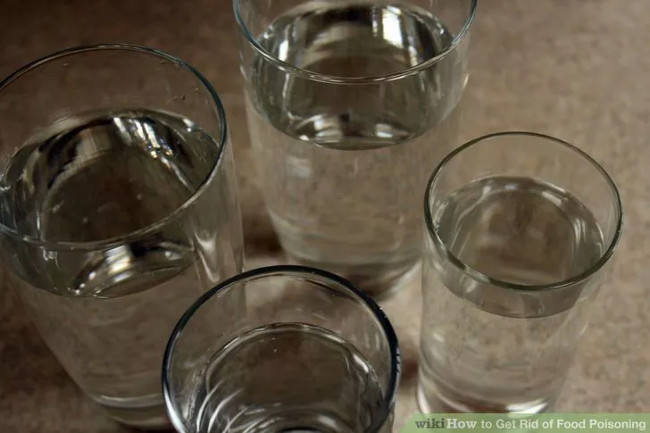
Increasing the amount of liquid will be easier to remove toxins from the body if the amount of water absorbed into the body is sufficient. Vomiting and diarrhea are common symptoms of food poisoning and are also the causes of dehydration, so it is important that you drink water and other drinks to avoid dehydration . Adults should drink at least 16 cups of water a day.
2. Limit hard food
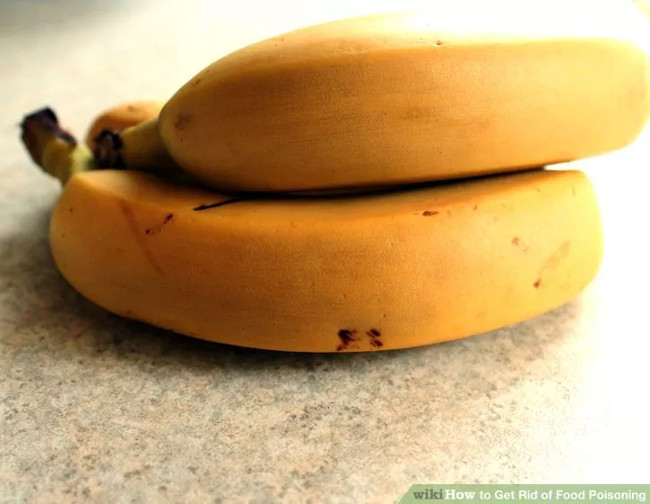
Food poisoning causes vomiting and diarrhea, the body's two natural functions that release toxins from the body. Eating solid foods will cause more vomiting and diarrhea, so it's best to avoid eating or drinking until you feel better.
- Avoid foods that cause poisoning.If you are unsure about the cause, avoid unprepared food before being absorbed into the body.
- If you do not like to eat broth and soup, you can use simple food without stomach discomfort such as bananas, white rice or dry bread for example.
- Herbal tea, especially peppermint tea, has a soothing effect on the stomach.You should drink peppermint tea to provide enough water for your body and to manage nausea.
- Ginger or sodas also help rehydrate and carbonates work to stabilize the stomach.
- Avoid drinking coffee, alcohol and other liquids that cause more dehydration.
3. Replace electrolytes
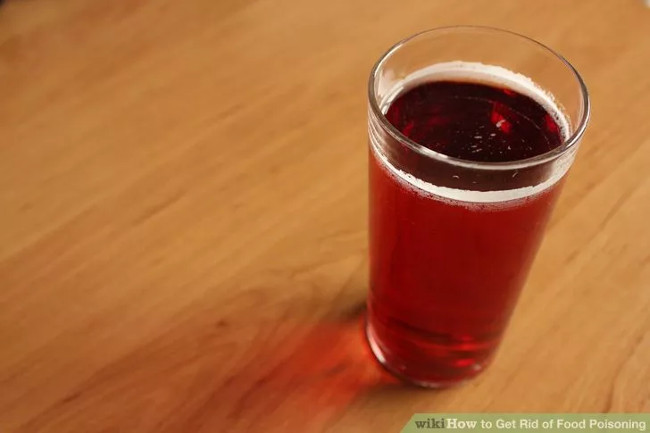
If you lose a lot of nutrients due to dehydration, you can buy electrolyte solution at the pharmacy instead.Gatorade or Pedialyte also have the same effect.
4. Get plenty of rest
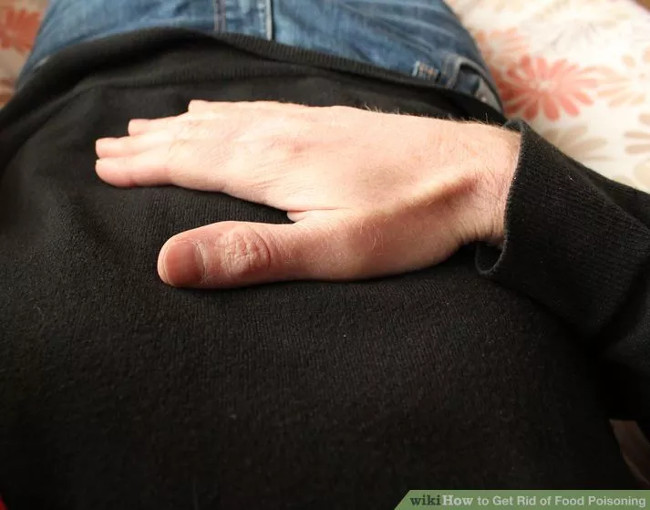
You may feel weak and tired after experiencing symptoms of food poisoning. So you need a lot of sleep to help your body recover more quickly.
5. Avoid taking drugs
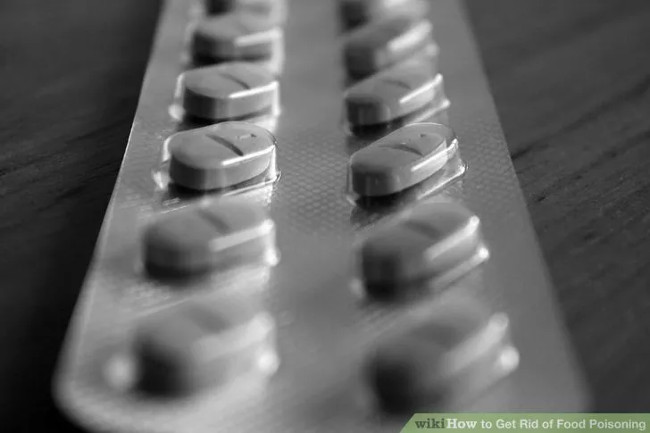
Drugs available at pharmacies work to prevent diarrhea and vomiting that slow resilience through hindering the function of treating natural food poisoning.
Part 3: Preventing food poisoning
1. Wash your hands, dishes and kitchen surfaces thoroughly
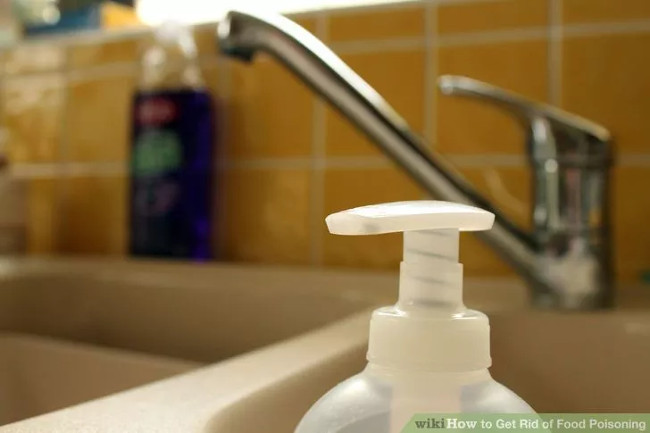
Food poisoning is often caused by bacteria that get into food through unsanitary hands, dishes, cutting boards, utensils or kitchen surfaces. Therefore, you need to take the following measures to prevent food poisoning from happening:
- Wash your hands with warm, soapy water before preparing food.
- Wash dishes and utensils with warm, soapy water after use.
- Use detergent to clean the kitchen counter, countertop, cutting board and other surfaces in the kitchen after preparing meals, especially including raw meat.
2. Store food properly
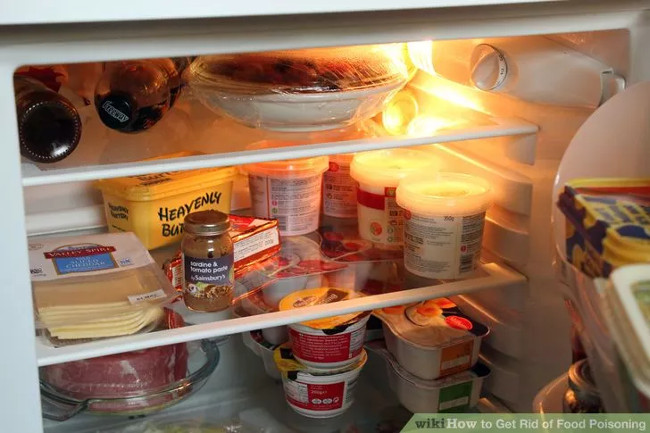
Raw food, such as chicken or beef, should be separated from food without cooking to prevent cross-contamination. Meat and milk should be cooled immediately after being brought from the market.
3. Cook meat
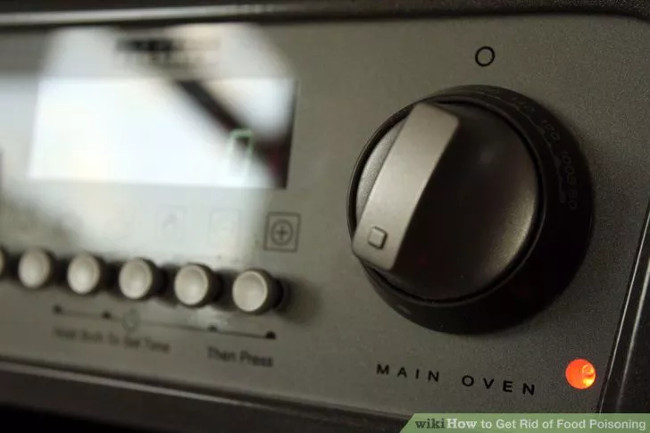
Cooking meat until the internal temperature is reached can kill bacteria that prevent food poisoning caused by bacteria. Also, you need to know how much the cooking temperature is and use the thermometer to check the temperature before you finish cooking.
- Chicken and other poultry should be cooked to 75 degrees C ( 165 degrees F )
- Ground beef should be cooked to 70 degrees C ( 160 degrees F )
- Steak and barbecue should be cooked to 60 degrees C ( 145 degrees F )
- Pork should be cooked to 70 degrees C ( 160 degrees F )
- Fish should be cooked to 60 degrees C ( 145 degrees F )
4. Do not eat forest mushrooms

In recent years, the consumption of forest mushrooms has become popular.However,unless instructed by experts to choose mushrooms, you should avoid picking and eating them.Even scientists have difficulty in distinguishing edible mushrooms and poisonous mushrooms if they do not conduct biological tests.
Refer to some more articles:
- 7 cleaning products should never be mixed together
- What happens if you mix honey with cinnamon powder every day?
- How to treat colds quickly and effectively
Having fun!